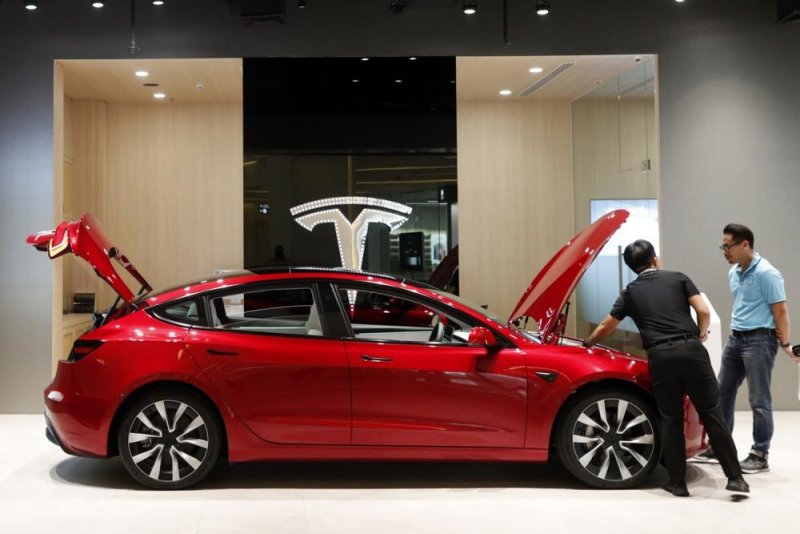The Tesla Model 3 and three other models built from 2023 to 2025 are subject to a voluntary recall to fix a software problem that might cause the vehicles’ rearview cameras to cease working. Photo by Rungroj Yongrit/EPA-EFE
Jan. 11 (UPI) — Tesla has recalled more than 239,000 of its Model 3, S, X and Y electric vehicles due to software problems that might disable their rearview cameras.
The safety recall affects Model 3 Tesla cars produced in 2024 and 2025, and Model S, X and Y Teslas built from 2023 to 2025.
A small percentage of recalled models have a short circuit failure in their onboard computers that cause the loss of their rearview cameras, which could affect drivers’ visibility while backing up.
Affected vehicles will show a blank rearview camera display while the vehicle is in reverse.
The loss of the rearview camera increases the potential for a collision but could be overcome by performing a shoulder check and using side and rearview mirrors.
Tesla initiated the recall after learning of the problem on Nov. 21 when it observed an increase in the number of car computer replacements due to short circuits in the primary or secondary power component.
Tesla engineers investigated the matter from Nov. 26 to Dec. 20, and learned the condition caused low voltage battery power and hardware vintage and firmware releases.
Specific software and hardware configurations in recalled vehicles combined with colder outdoor temperatures sometimes increased reverse electrical current, which caused a short circuit in the affected components.
Tesla engineers traced the problem to prior software releases and specific models affected before voluntarily recalling the vehicles.
The problem so far has triggered 887 warranty claims and 68 filed reports, but Tesla engineers are unaware of any collisions, injuries or fatalities caused by the software problem.
Tesla on Dec. 18 implemented over-the-air software updates to correct the problem at no cost to vehicle owners.
The software update addresses the short circuit by altering each affected vehicle’s power-up sequence to prevent the shorting failure with no further action required.
Tesla also addressed the matter in vehicles under production starting on Dec. 16.
Tesla began notifying owners and Tesla stores and service centers of the problem on Wednesday.
The recall affects more than 239,000 Tesla vehicles, but the over-the-air software update eliminates the need to take them in for servicing.
